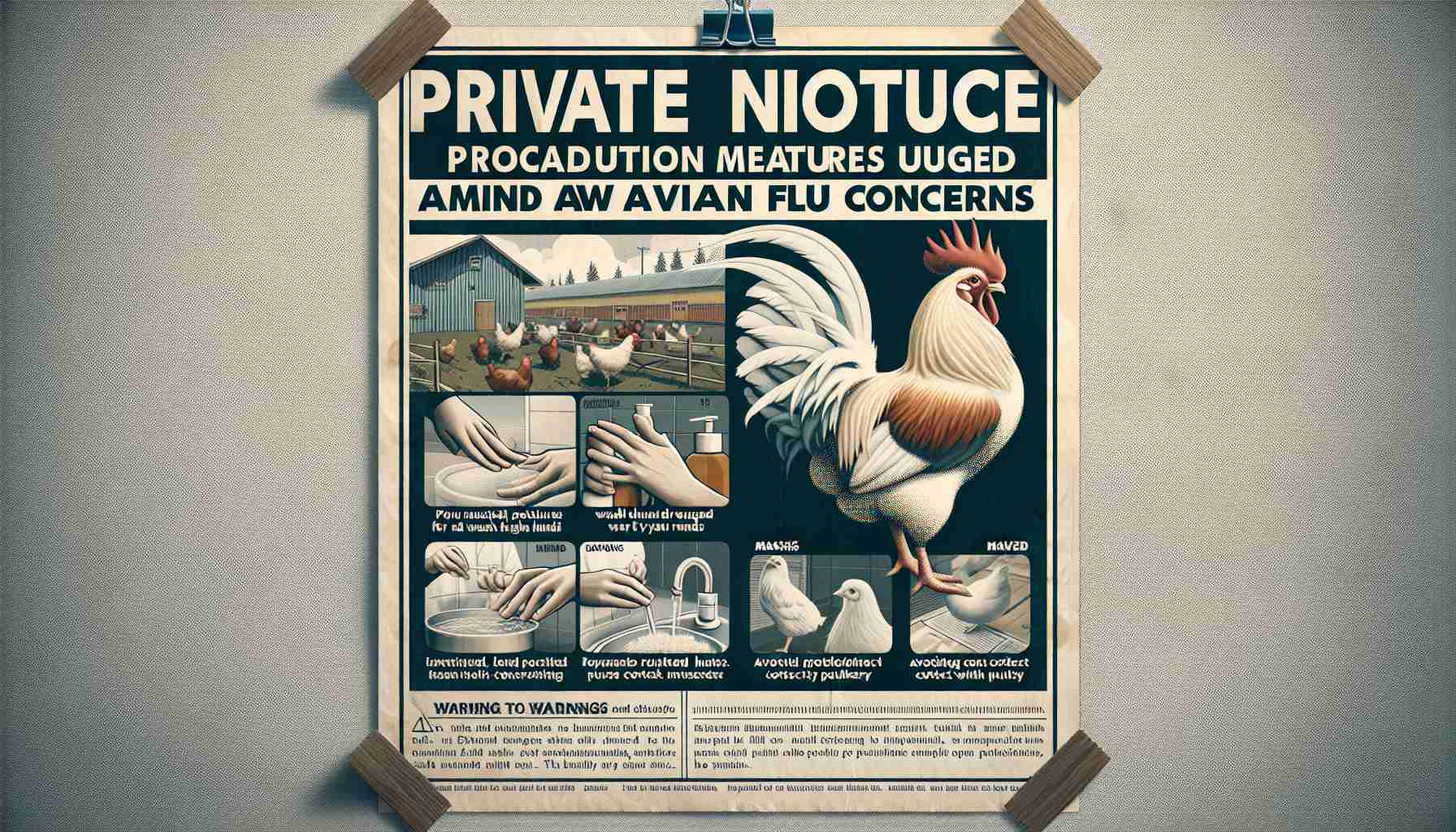Recent reports indicate the emergence of avian influenza on a farm in the northern region of England, prompting health authorities to issue warnings to residents of the Isle of Man. Following the identification of sick birds in East Riding, Yorkshire, a controlled area has been established, spanning 6.2 miles (10 km) around the affected farm.
Although no infections have been detected on the Isle of Man, officials emphasize the importance of exercising caution due to the high risk of transmission from wild birds, which are known vectors for the virus. Amy Beckett, the chief veterinary officer, has stressed the need for poultry owners to remain alert and implement protective measures for their flocks, especially following the multiple reports of infections in the UK.
The spread of this virus is primarily linked to interactions between wild and domesticated birds through droppings, saliva, and contaminated environments. While the potential threat to human health is assessed as minimal, authorities recommend that bird owners limit external contact with their flocks and maintain rigorous hygiene protocols.
In light of these developments, the Department of Environment, Food, and Agriculture urges poultry keepers to protect their birds by adhering to strict biosecurity measures. This includes regular disinfection of equipment and vigilant monitoring for any signs of illness in their birds. Those who suspect a case of avian flu are encouraged to reach out to the health team for guidance.
Stay Safe: Tips and Hacks to Prevent Avian Influenza Transmission
As concerns about avian influenza rise, particularly following recent outbreaks in the UK, it’s crucial for those in the region and poultry owners everywhere to take proactive measures. Below, we share some practical tips, essential life hacks, and interesting facts to help safeguard your birds and yourself.
1. Implement Strict Biosecurity Measures
To protect your poultry, it’s vital to establish biosecurity protocols. This includes restricting access to your birds, keeping the area clean, and disinfection of any tools or equipment used around them. Invest in a good disinfectant that is effective against avian viruses.
2. Monitor Wild Bird Activity
Since wild birds are significant carriers of the virus, keeping an eye on their presence around your farm is essential. Use birdwatching apps or local wildlife reports to stay informed. If you notice a large influx of wild birds, consider adjusting your poultry’s outdoor access to minimize potential contact.
3. Maintain Rigorous Hygiene Practices
Ensure that anyone handling your birds washes their hands thoroughly before and after. Use disposable gloves when interacting with birds, particularly if they show signs of illness. Make it a habit to change footwear before entering areas where your poultry are kept to avoid contamination.
4. Create a Safe Zone for Your Flock
If you haven’t already, consider building a covered run for your birds. This way, they can enjoy fresh air while being protected from wild birds. Covering the area helps keep droppings and potential contaminants away, reducing the risk of virus transmission.
5. Act Quickly at the First Signs of Illness
Familiarize yourself with the symptoms of avian influenza, such as sudden death in birds, respiratory distress, and a drop in egg production. If you observe any of these signs, isolate the affected birds and contact local veterinary services immediately for assessment and guidance.
6. Educate Yourself and Others
Knowledge is power. Stay updated on current health advisories regarding avian influenza. Share this information with fellow poultry keepers and encourage them to take precautionary measures as well. Forming a local support group can help distribute vital knowledge and resources.
Interesting Fact: Did you know that avian influenza viruses can survive in the environment for several months, especially in wet conditions? This highlights the importance of regular cleaning and disinfection of equipment and surfaces in poultry areas.
Resources: For more information on how to protect your flock from avian influenza, you can visit the UK Government’s official website for updated guidelines and recommendations.
By adhering to these tips and implementing strong biosecurity measures, you can significantly reduce the risk posed by avian influenza to your poultry and the broader community. Stay informed, stay safe, and ensure that your birds remain healthy throughout this challenging time.
